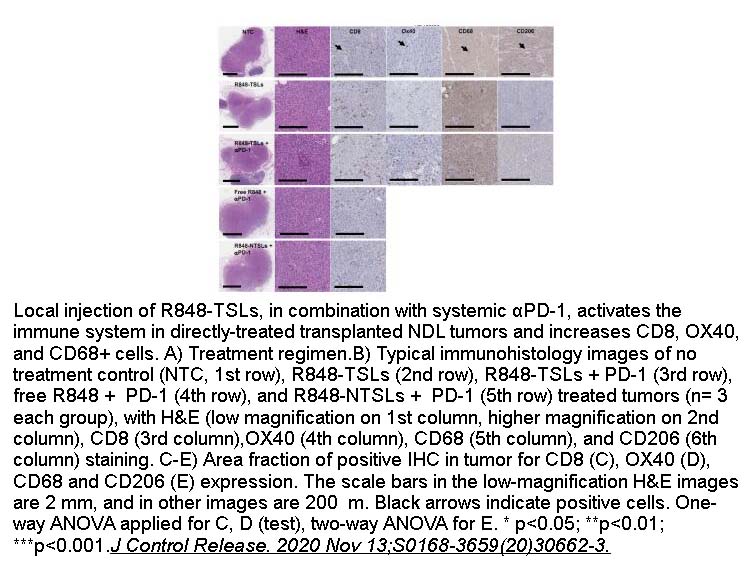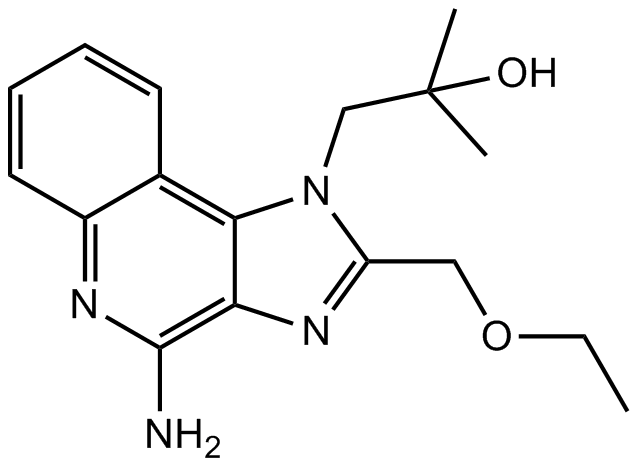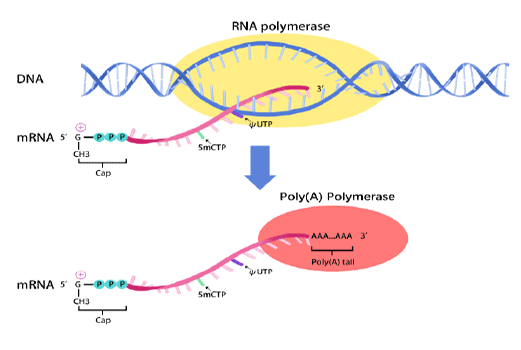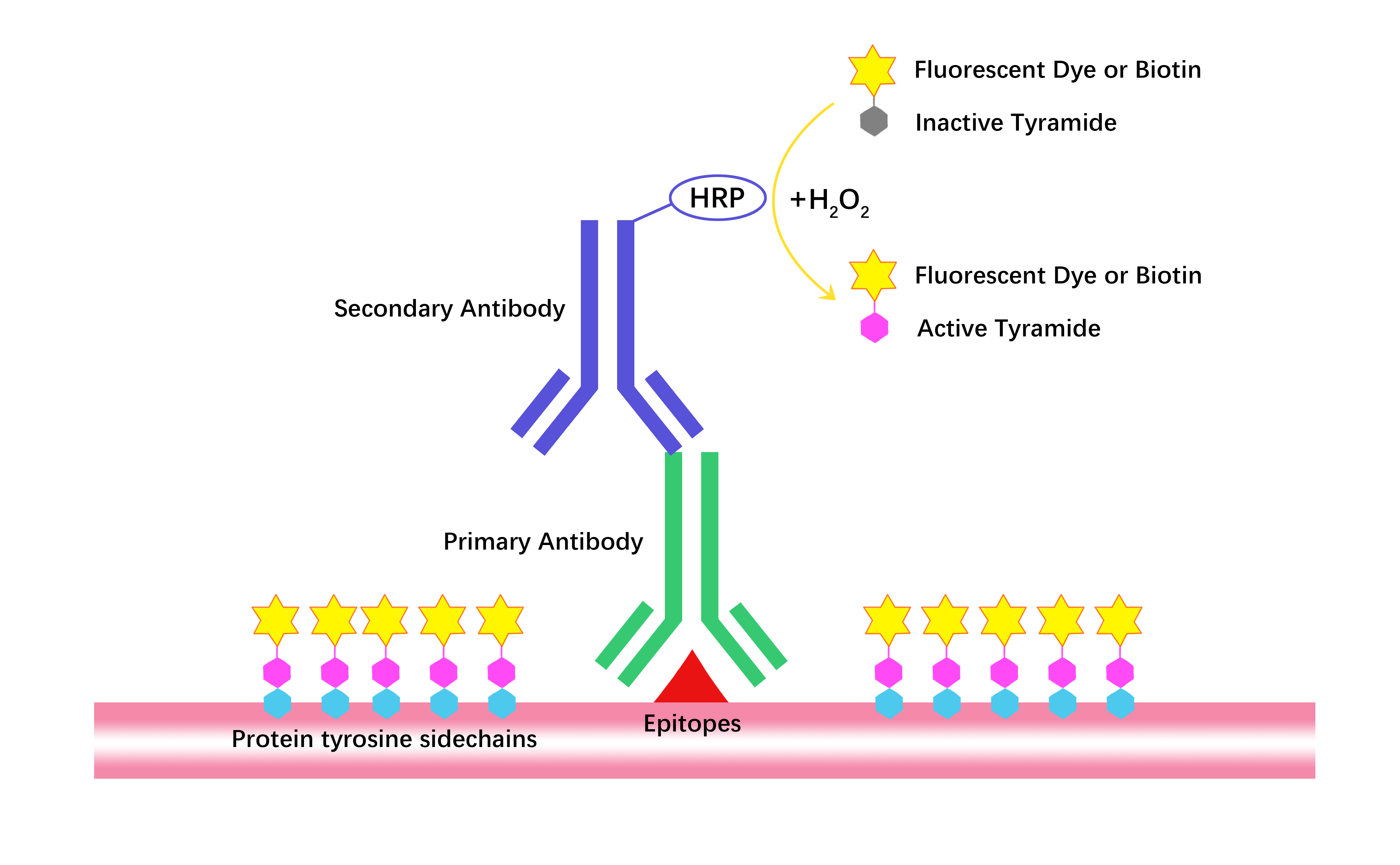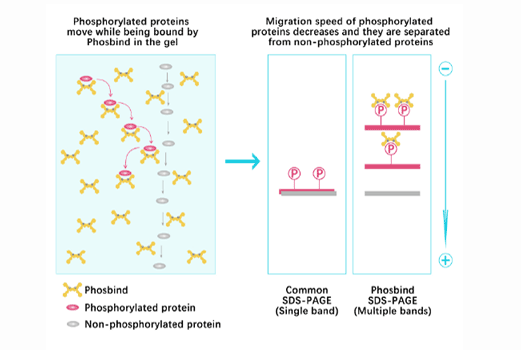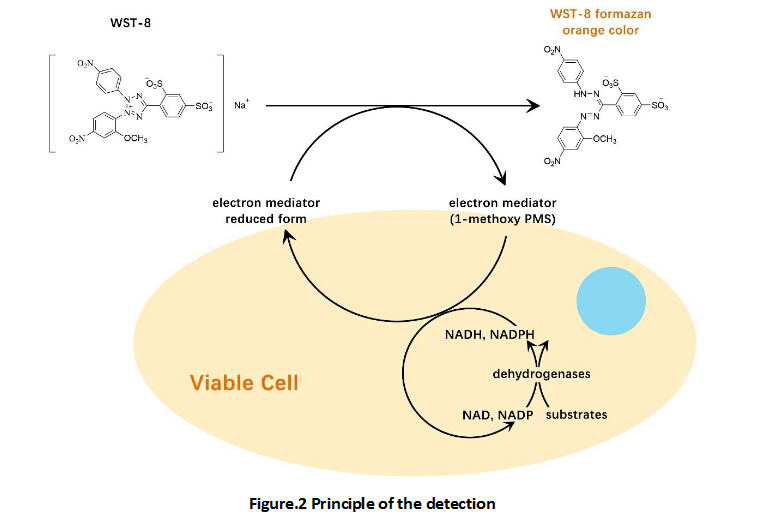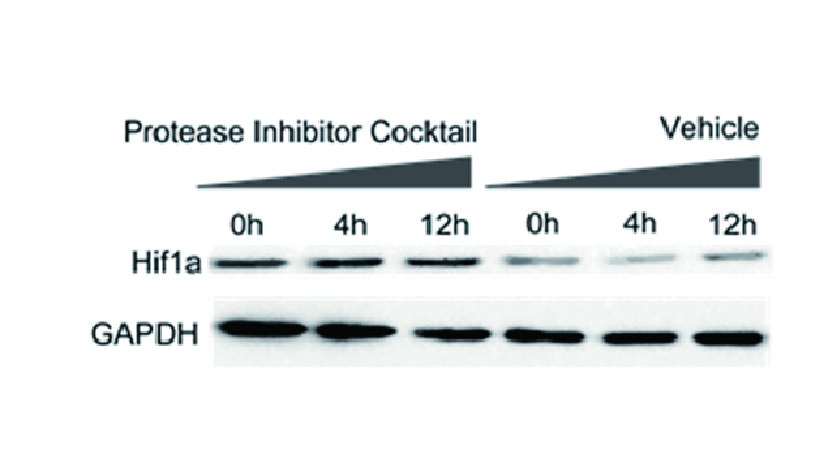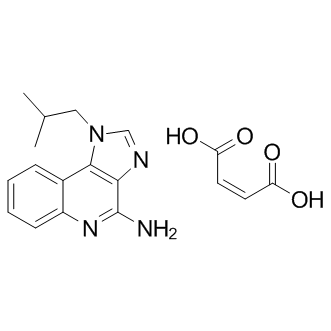Resiquimod (R-848)
Resiquimod (CAS 144875-48-9) is an orally bioavailable imidazoquinoline compound, functioning as a potent agonist of Toll-like receptor 7 (TLR7) and Toll-like receptor 8 (TLR8) in immune cells, and exhibiting strong immune stimulatory activity in a variety of cell types. Additionally, it modulates the innate immune response by inducing the production of key cytokines, such as TNF-α, IL-6, and IFN-α, and promotes activation and maturation of dendritic cells.
In experimental studies, Resiquimod markedly enhances the secretion of proinflammatory and antiviral cytokines with [ ] values, tested against [human peripheral blood mononuclear cells (PBMCs), murine splenocytes, and other immune-relevant cell lines]. It can also trigger upregulation of co-stimulatory molecules and facilitate antigen presentation by immune cells, thereby enhancing the overall immune response to pathogens or tumor antigens.
In immunological and translational research, Resiquimod is widely used for the activation of innate immune pathways, the study of TLR-mediated signaling, and as a tool compound in the development of immune-modulatory therapies. Its ability to robustly stimulate cytokine production makes it valuable in preclinical models of infectious disease, cancer immunotherapy, and vaccine adjuvant development.
- 1. Isobel K Dunstan, Daniel C Anthony Orcid, et al. "Protocol: A metabolomic analysis of convalescent inflammatory conditions." 26 Mar 25
- 2. Daniel C. Anthony, et al. "Unique pathways downstream of TLR-4 and TLR-7 activation: sex-dependent behavioural, cytokine, and metabolic consequences." Front Cell Neurosci. 2024 Feb 13:18:1345441. PMID: 38414751
- 3. Hua Zhang, Wei-Lun Tang, et al. "Development of thermosensitive resiquimod-loaded liposomes for enhanced cancer immunotherapy." J Control Release. 2020 Nov 13;S0168-3659(20)30662-3. PMID: 33189786
- 4. Natasha Vinod, Duhyeong Hwang, et al. "High-capacity poly(2-oxazoline) formulation of TLR 7/8 agonist extends survival in a chemo-insensitive, metastatic model of lung adenocarcinoma." Sci Adv. 2020 Jun 17;6(25):eaba5542 PMID: 32596460
- 5. Mohammed S, Vineetha NS, et al. "Examination of the role of sphingosine kinase 2 in a murine model of systemic lupus erythematosus." FASEB J. 2019 Jun;33(6):7061-7071. PMID: 30840833
- 6. Qu S, Qin T, et al. "The effects of resiquimod in an ovalbumin-induced allergic rhinitis model." Int Immunopharmacol. 2018 Jun;59:233-242. PMID: 29665497
| Storage | Store at -20°C |
| M.Wt | 314.38 |
| Cas No. | 144875-48-9 |
| Formula | C17H22N4O2 |
| Synonyms | S28463 |
| Solubility | insoluble in H2O; ≥12.65 mg/mL in EtOH with ultrasonic; ≥15.85 mg/mL in DMSO |
| Chemical Name | 1-[4-amino-2-(ethoxymethyl)imidazo[4,5-c]quinolin-1-yl]-2-methylpropan-2-ol |
| SDF | Download SDF |
| Canonical SMILES | CCOCc1nc(c(N)nc2c3cccc2)c3[n]1CC(C)(C)O |
| Shipping Condition | Small Molecules with Blue Ice, Modified Nucleotides with Dry Ice. |
| General tips | We do not recommend long-term storage for the solution, please use it up soon. |
| Cell experiment [1]: | |
|
Cell lines |
Peritoneal macrophages from wild-type and MyD88-deficient mice |
|
Preparation method |
The solubility of this compound in DMSO is >10 mM. General tips for obtaining a higher concentration: Please warm the tube at 37°C for 10 minutes and/or shake it in the ultrasonic bath for a while. Stock solution can be stored below -20°C for several months. |
|
Reacting condition |
100 nM |
|
Applications |
Unlike LPS-induced activation, which was MyD88-independent, Resiquimod-induced activation of NF-κB was completely dependent on MyD88. It was implied that Resiquimod activated macrophages via TLRs. |
| Animal experiment [1]: | |
|
Animal models |
Wild-type, TLR7-deficient and MyD88-deficient mice |
|
Dosage form |
50 nmol; i.p. |
|
Applications |
In wild-type mice, Resiquimod (50 nmol, i.p.) increased serum concentrations of cytokines including IFN-alpha, TNF-alpha and IL-12. However, in TLR7-deficient and MyD88-deficient mice, there was not any increase in these cytokines. |
|
Other notes |
Please test the solubility of all compounds indoor, and the actual solubility may slightly differ with the theoretical value. This is caused by an experimental system error and it is normal. |
|
References: [1] Hemmi H, Kaisho T, Takeuchi O, Sato S, Sanjo H, Hoshino K, Horiuchi T, Tomizawa H, Takeda K, Akira S. Small anti-viral compounds activate immune cells via the TLR7 MyD88-dependent signaling pathway. Nat Immunol. 2002 Feb; 3 (2): 196-200. |
|
Quality Control & MSDS
- View current batch:
Chemical structure
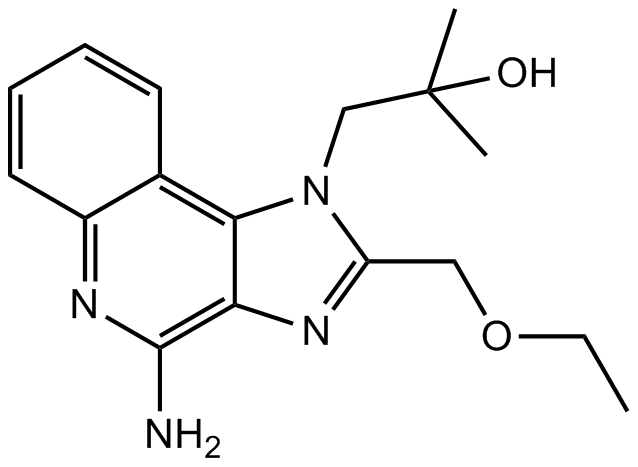
Related Biological Data
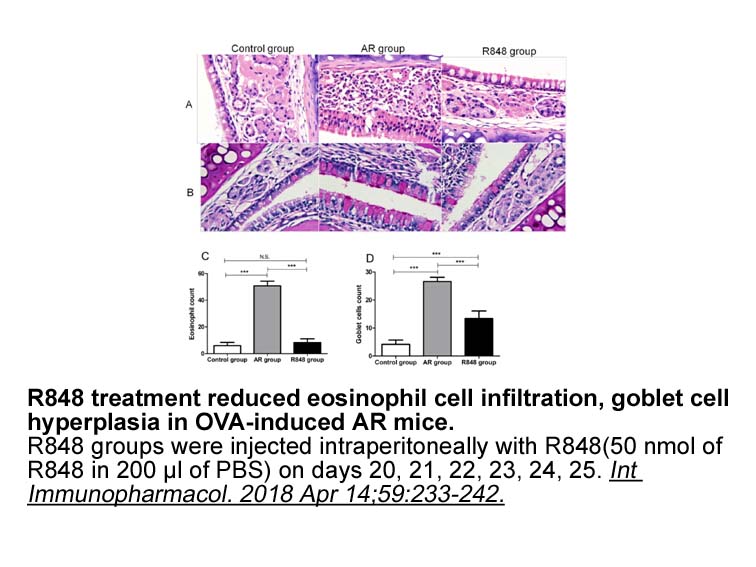
Related Biological Data
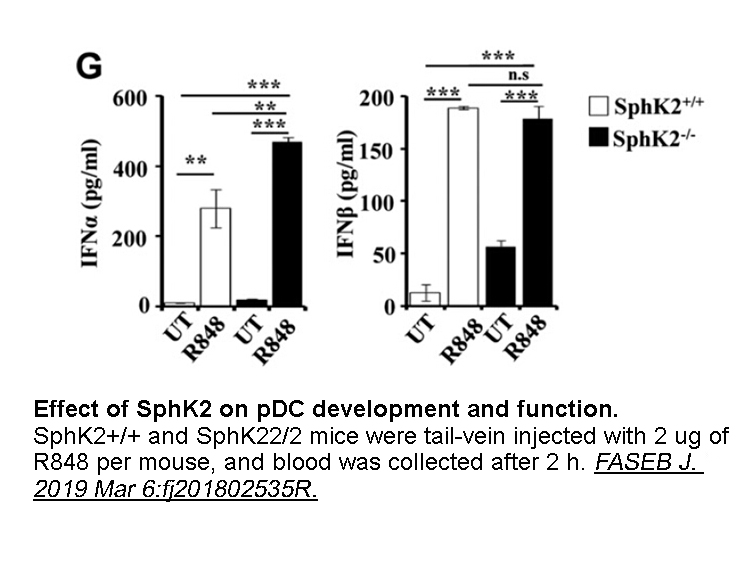
Related Biological Data
